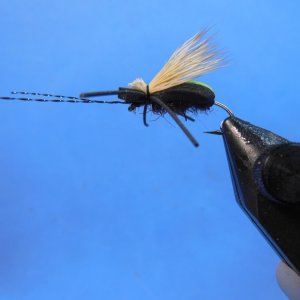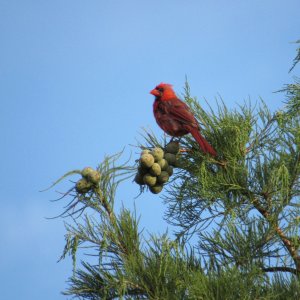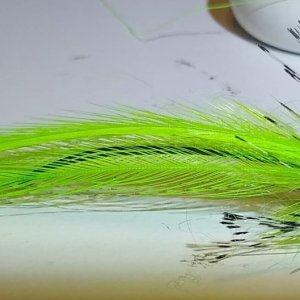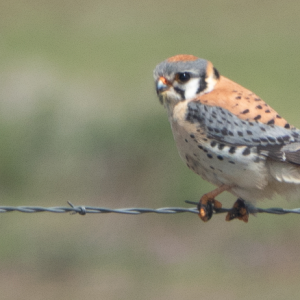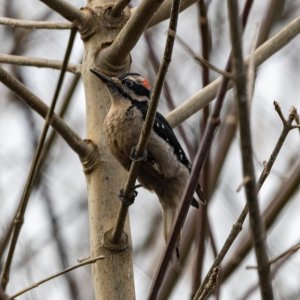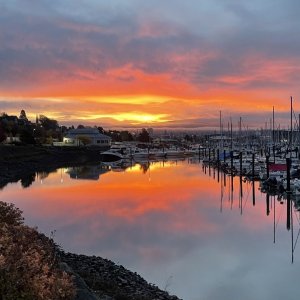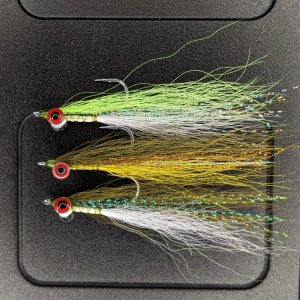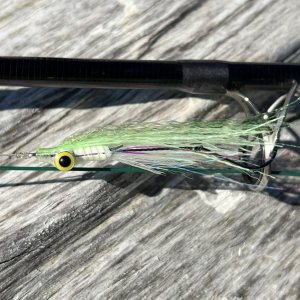Well , here we again . The usual fall circus . I guess it will never end . They add just about nothing to the economy compared to sporties . I would like to know who buys fish that have been laying dead in 71 degree water for hours and are not bled. Cat food ? We really need that ballot measure to stop this joke. Do they really have that much political clout ? Never have so few contributed so little. We are the vast majority and yet we can not seem to gain any serious traction. No one makes a living netting , this is not 1910. They do it because they can. Serenity now !
You are using an out of date browser. It may not display this or other websites correctly.
You should upgrade or use an alternative browser.
You should upgrade or use an alternative browser.
kill nets
- Thread starter cchinook45
- Start date
Well, considering everyone in Colorado last week was hyped to get frozen chunks of marinated dog salmon from Costco, I’m going to say the middle states.Well , here we again . The usual fall circus . I guess it will never end . They add just about nothing to the economy compared to sporties . I would like to know who buys fish that have been laying dead in 71 degree water for hours and are not bled.
The processors have the political clout. They oppose reductions in commercial fishing opportunity because commercial fishing is their cornerstone. The treaty tribes have political clout and also oppose elimination of non-treaty commercial fishing because of the "slippery slope" theory that if non-treaty commercial fishing disappears, then legislation restricting treaty fishing may follow. WDFW likes commercial fishing because it allows them to continue doing "what they've always done." Even though it costs more to manage some of the relic remaining commercial fisheries than those fisheries bring in in landed ex-vessel landed fish. Sport fishing interests have never organized to the extent necessary to bring about significant changes in fisheries management, and there is no indication that they ever will.
It would be nice if O.D.F.W. cared about our salmon hatcheries and stop spending money on pellet heads.The processors have the political clout. They oppose reductions in commercial fishing opportunity because commercial fishing is their cornerstone. The treaty tribes have political clout and also oppose elimination of non-treaty commercial fishing because of the "slippery slope" theory that if non-treaty commercial fishing disappears, then legislation restricting treaty fishing may follow. WDFW likes commercial fishing because it allows them to continue doing "what they've always done." Even though it costs more to manage some of the relic remaining commercial fisheries than those fisheries bring in in landed ex-vessel landed fish. Sport fishing interests have never organized to the extent necessary to bring about significant changes in fisheries management, and there is no indication that they ever will.
FWIW I know a lot of the Seine fishermen spend their summers up in Alaska, then come down here to net in the fall. My best friend is a purse seiner and his family used to occasionally do the Chums- they stopped because the amount of fish caught never justified the cost of getting out and fishing
?It would be nice if O.D.F.W. cared about our salmon hatcheries and stop spending money on pellet heads.
All hatchery fish are "pellet heads".
Worked around a bunch of seine fishermen on Kodiak doing exactly what you're talking about. Most were from Longview and Kalama. They called the Fall Columbia River openings their hobby fishing and did it purely for recreation.FWIW I know a lot of the Seine fishermen spend their summers up in Alaska, then come down here to net in the fall. My best friend is a purse seiner and his family used to occasionally do the Chums- they stopped because the amount of fish caught never justified the cost of getting out and fishing
JayB
Steelhead
The first time I read this editorial *opposing* passage of a 1995 ballot measure calling for the elimination of non-tribal gillnets I had to do a triple-headshake when I saw the list of signatories. Would love to hear insiders describe how it was that 'The Friends of the Earth' stepped forward to *oppose* a non-tribal gillnet ban. "With friends like these..."Well , here we again . The usual fall circus . I guess it will never end . They add just about nothing to the economy compared to sporties . I would like to know who buys fish that have been laying dead in 71 degree water for hours and are not bled. Cat food ? We really need that ballot measure to stop this joke. Do they really have that much political clout ? Never have so few contributed so little. We are the vast majority and yet we can not seem to gain any serious traction. No one makes a living netting , this is not 1910. They do it because they can. Serenity now !
"Initiative 640: Vote `No' On Musical-Chairs Fishery
Nov 2, 1995Lorri Bodi, Shawn Cantrell, Mitch Friedman, Kathy Fletcher, Jim Baker, Sherilyn Wells
Special To The Times
INITIATIVE 640 would "save our sealife" only in rhetoric - not in reality. 640 talks the talk of fish conservation, but it walks the walk of fish allocation - who catches which fish. In an era of salmon and steelhead runs declining toward extinctions, conservationists refuse to fight over who gets to catch the last fish.
Attacking the commercial fishing industry for the loss of salmon just blames the victims. Conservationists reject the notion that, in the face of declining salmon runs, the Northwest should conduct a tragic game of musical chairs in which the odd harvester out - commercial, recreational, or tribal - goes into extinction with the fish.
Initiative 640 would divide our society by playing just such a game of fishing musical chairs, and would plunge our state into a bitter "lose-lose" result - devastating the commercial fishing industry, which generates $250 million annually and maintains 20,000 jobs, and at the same time, failing to save the salmon, much less restore the fish to their former abundance.
Various I-640 proponents have expressed surprise and outrage that environmentalists generally have remained neutral on, or have come out in opposition to, this so-called "Save Our Sealife" initiative. They cite scary figures for over-harvesting and for "by-catch" of other fish runs and water birds, expecting knee-jerk support from the environmental community.
If commercial fishing is responsible for salmon declines as
I-640 supporters claim, then why are steelhead vanishing in the Northwest, too? By law going exclusively to sport anglers and tribes, steelhead have no commercial harvest and virtually no by-catch. In point of fact, the root causes of fish declines and extinctions are dams, logging, paving, pollution, out-of-control hatcheries, and a host of other human-inflicted ills that destroy the ability of these fish to spawn and migrate successfully in our streams.
Even if we agreed lock-stock-and-barrel with the initiative's supporters about the problem - which we do not - conservationists would still oppose I-640 as the solution. The proposed law is written in such a mangled way that it could not and would not reform any of these alleged abuses on Washington state waters. If approved by the voters on Tuesday, Initiative 640 will only spawn masses of new bureaucracy and protracted litigation.
Moreover, I-640 backers have courted and received major contributions from the Columbia River Alliance - a coalition of electric utilities, aluminum companies, inland ports and other industrial river-users - which has staunchly fought environmentalists' efforts to save endangered salmon in the Columbia and Snake rivers. Meanwhile, commercial fishing groups have come out strongly and publicly in support of the Endangered Species Act, the Clean Water Act, spawning habitat restoration, reform of hydroelectric operations, and other key environmental protections.
Here is what's wrong with this initiative:
-- I-640 is fatally complicated and bureaucratic. For example, I-640 locks the governor and the state into one and only one rigid position on re-negotiation of the Pacific Salmon Treaty with Canada. Negotiation of international treaties by state referendum ballot makes no sense.
-- I-640 would wreck the state's commercial fishing industry. While its proponents claim that the initiative seeks only to protect fish from abusive harvest practices, I-640 would actually devastate commercial fishing in Washington state - an industry that generates $250 million annually and maintains 20,000 jobs directly in our economy. Functionally, I-640 would ban the harvest of chinook and coho salmon by commercial operators so that only recreational anglers can catch these fish.
-- I-640 will not save salmon and steelhead. The initiative says absolutely nothing, and does absolutely nothing, about the root causes of fish declines and extinctions: destruction of spawning habitat due to logging and urbanization, migration blockages by hydroelectric dams, and unsound hatchery practices. The initiative also does absolutely nothing about fishing practices to the south in Oregon and California, or up north in Alaska and Canada.
Not that long ago, the great runs of Pacific Northwest salmon and steelhead provided plenty for all - commercial harvesters, sport anglers, and American Indian tribes - and the natural ecosystems were made healthy and vibrant by the annual return of these magnificent fish. Today, humankind have destroyed the abundance of yesteryear, and threaten to wipe out the salmon altogether.
As a society, we must band together to heal spawning habitat, clean up the water, and fix the dams so that Northwest streams once again run with bountiful salmon for everyone.
The authors are Lorri Bodi, Northwest regional co-director, American Rivers; Shawn Cantrell, associate Northwest representative, Friends of the Earth; Mitch Friedman, executive director, Northwest Ecosystem Alliance; Kathy Fletcher, executive director, People for Puget Sound; Jim Baker, Northwest salmon campaign coordinator, Sierra Club; Sherilyn Wells, co-president, Washington Environmental Council."
You and me both. It annoys the hell out of me that politicians and fisheries policy wonks perpetuate the lie that we can have it both ways, that mutually exclusive outcomes are indeed possible! Of course a gill net ban won't save or restore salmon. Yes, it is about allocation, and I freely admit it. And it indeed about who will catch the last salmon, or close to the last salmon. Pretending that we're somehow going to recover and restore depleted salmon populations is simply delusional, duplicitous, or both. Sure, there have been some temporary population increases here and there, but the fact is that since white people arrived on the west coast the overall trend line is downward. Anyone who doesn't think that is a poor student of history and human social behavior. People are not altruists. So it comes down to making the highest and best use of the remaining available resource. This is fundamentally why we have catch and release fishing for many trout and all wild steelhead populations. It's not that people don't like to kill and eat them. It's fundamentally a recognition that there are too few fish to go around the many, many people who would like to catch them.The first time I read this editorial *opposing* passage of a 1995 ballot measure calling for the elimination of non-tribal gillnets I had to do a triple-headshake when I saw the list of signatories. Would love to hear insiders describe how it was that 'The Friends of the Earth' stepped forward to *oppose* a non-tribal gillnet ban. "With friends like these..."
The non-treaty commercial fishing fleet in WA is an anachronism. It has outlived its social and economic utility. There is ample treaty fishing with adequate commercial harvesting capability to scoop up surplus salmon when and where they do occur, and they possess the legal trump card to catch the last remaining harvestable salmon. There is no social nor economic need for a non-treaty commercial salmon fishing fleet in WA state.
Pink Nighty
Life of the Party
This is fantastically well put. I am bummed that the economic opportunities of commercial fisheries are so diminished in Washington. It wasn't long ago that Blaine Harbor was filled with a local commercial fleet, I remember it well. My dad paid his way through college working summers on a tender parked in Eliza passage, my friends dad made half his income (well paid electrician) fishing sockeye for a month up until the mid 2000s. It is heartbreaking to me to see that lost.You and me both. It annoys the hell out of me that politicians and fisheries policy wonks perpetuate the lie that we can have it both ways, that mutually exclusive outcomes are indeed possible! Of course a gill net ban won't save or restore salmon. Yes, it is about allocation, and I freely admit it. And it indeed about who will catch the last salmon, or close to the last salmon. Pretending that we're somehow going to recover and restore depleted salmon populations is simply delusional, duplicitous, or both. Sure, there have been some temporary population increases here and there, but the fact is that since white people arrived on the west coast the overall trend line is downward. Anyone who doesn't think that is a poor student of history and human social behavior. People are not altruists. So it comes down to making the highest and best use of the remaining available resource. This is fundamentally why we have catch and release fishing for many trout and all wild steelhead populations. It's not that people don't like to kill and eat them. It's fundamentally a recognition that there are too few fish to go around the many, many people who would like to catch them.
The non-treaty commercial fishing fleet in WA is an anachronism. It has outlived its social and economic utility. There is ample treaty fishing with adequate commercial harvesting capability to scoop up surplus salmon when and where they do occur, and they possess the legal trump card to catch the last remaining harvestable salmon. There is no social nor economic need for a non-treaty commercial salmon fishing fleet in WA state.
But the fact remains it IS lost. I personally know only one person who still maintains a commercial license, and they end up using it for filling their own freezer most years. Or not at all. My friends dad has fished just once in close to 20 years now. It's over.
The fact that we allow a handful of licensed fisherman to hoard the limited and fragile amount of economic value left in these fish is bordering on asinine. The value generated by your average hook and line fishermen vastly outstrips the value generated by a purse seiner. It is harder to track and account for and lacks a powerful lobby to enact change, so we are stuck with the bycatch and derelict gear and shortened or non-existent rec seasons. This, of course, actually stagnates the value created by these fish, concentrating it in the hands of the few.
I am a full supporter of tribal commercial fisheries, including buying 80% of my restaurants seafood from a Lummi hook and line fisherman. I am personally of the opinion that salish tribes operated on a salmon based economy, using salmon as a base food source but also as a trade good. Historically, salmon and fish served the same purpose as money. To me, the treaty of point elliot ought to preserve this economic function of salmon, with a modern interpretation being the right to commercially harvest fishes.
As a society in the state of washington, we need a paradigm shift in how we value a salmon. A living fish is simply worth more than a dead fish. Opportunity to fish drives economy through living fish, while commercial harvest only creates value through a dead fish.
Anyways, rant over. Pretty sure if they got rid of state based commercial fishing the allocation wouldnt make it to the rivers anyway. Downrigger gang will want em all next.

